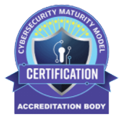
I hope you've all been participating in at least some kind of educational activities to help increase your awareness about the cybersecurity threat landscape out there, and things that you can do to decrease the risk for yourselves, your families, and your business. Cybersecurity Awareness Month is celebrated every single October, and was created in 2004 as a collaborative effort between government and industry to help ensure that every American that you can get the resources they need to stay safer and more secure online. This year, the focus is on four key behaviors throughout the month, enabling multifactor authentication that we talked about last time, using strong passwords and a password manager, updating software, recognizing and reporting phishing. So today, let's take a look at using strong passwords and leveraging a password manager to help you keep track and manage all of those passwords. So why should you use strong passwords? Well, according to the National Cybersecurity Alliance, passwords are the keys to your digital castle. So just like your house keys, you really should want to do everything you can to keep your password safe, no matter what accounts they protect. All passwords should be created with these guiding principles in mind. They should be long. At least 12 characters unique. Never use the same password on multiple accounts. Never use one multiple times and it should be complex. Each unique password should be a combination of uppercase letters, lowercase letters, numbers, and special characters. Speaker1: Now, the downside of having all of these passwords is remembering the stupid things, right? So that leads us to password managers. We probably all use one password to secure multiple, maybe even all of our digital accounts in the past, but that's just not safe. And it becomes even more unsafe as time goes on. Here's where password managers really shine. Password managers are pieces of software that can be apps, browser plug ins, or they might even be included automatically in your browser or computer operating system. Password managers automatically store your passwords and can autofill them when you arrive at a new site to get going. You can fill in all your passwords into it at once, or just add them over time. Most of them even give the option of storing the password when you log on to a new site for the first time. This it's not already recorded. You should always secure your password manager with multifactor authentication as well. Well, we'll finish up our discussion about focus items for National Cybersecurity Awareness Month next week. But meanwhile, do you have any questions about cybersecurity compliance or some other IT related issues? If you'd like to schedule a short, free consultation with me to discuss your problem, go to w-w-w dot txt solutions.com. Let's talk soon and till then stay safe and try to avoid cybersecurity risk. Thanks for joining me today for my thoughts on the deck. If you found it useful, please feel free to share it with your friends.








